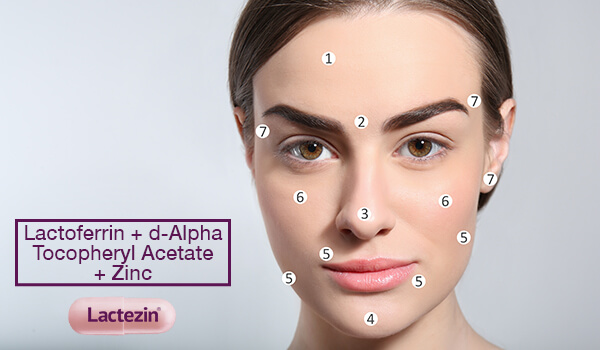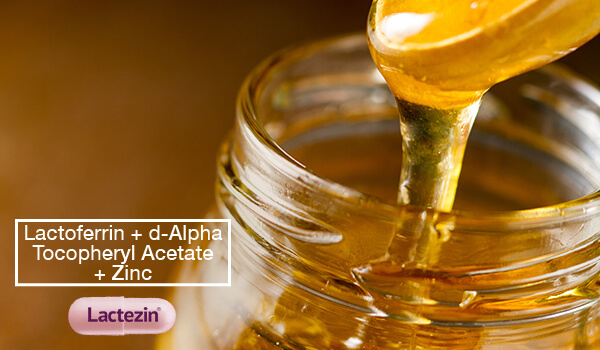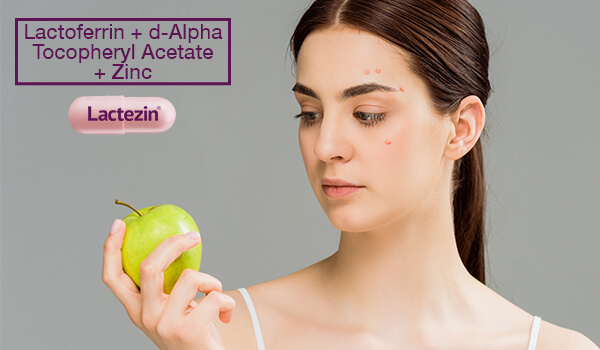5 Oily Skin Myths, Debunked

As if living with oily skin wasn’t troublesome enough, some misconceptions about this particular skin issue can actually make it even worse.
Oily skin 101
Our bodies produce oil (sebum) to keep our skin soft and supple, but this can be a problem if it produces too little or too much. Excess oil production can cause oiliness, which can eventually lead to breakouts.
Hormones and genetics are the main factors to blame for excess skin oil production. During puberty and other life events, fluctuating hormones can cause an increase in androgen levels, which then leads to increased oil production.
If you deal with constant shine and regular breakouts, you may have an oily skin type or combination skin type. If your face feels and looks shiny and moist, especially during the middle of the day, you fall under the oily skin category. Combination skin means your chin, nose, and forehead are oily and more prone to acne, but your temples, cheeks, and eye area feel dry.
Oily skin myths
Now that the facts have been laid out, it’s time to get to the bottom of these oily skin myths once and for all.
Myth #1: Oily skin doesn’t need to be moisturized.
Easily the most common misconception on this list. Many people think that if you have oily skin, you don’t need to use moisturizer. But avoiding moisturizer may actually dry out your skin and cause your glands to produce more sebum to make up for it. Choose oil-free, non-comedic moisturizers, especially if you are acne-prone.
Myth #2: Wearing sunscreen causes increased oil production.
Another prevalent misconception is that wearing sunscreen daily is too heavy for oily skin. But to prevent sun damage, protecting your skin with sunscreen should be part of your daily routine. If you have oily skin, use a lightweight sunscreen or a tinted moisturizer with built-in SPF before heading out.
Myth #3: To stay shine-free, use an alcohol-based astringent or toner.
The cooling, pore-tightening feeling after using an astringent may feel satisfying, but exercise caution if you have oily skin. The alcohol content in some astringents or toners can completely strip the skin of its natural oils and cause it to produce even more oil to compensate for what was lost. This also applies to other alcohol-based skincare products.
Myth #4: It’s okay to exfoliate every day.
As tempting as it is to scrub all the oil away, daily exfoliation is definitely a no-no (even for other skin types). Experts recommend that you observe how your skin responds to exfoliation and adjusting frequency and the type of exfoliant if you notice increased oil production or irritation.
Myth #5: Greasy food = greasy skin.
There was a time when it was believed that eating greasy food causes oily skin. Though there are links to diet and acne, the connection isn’t exactly what you think it is. A number of studies have shown that consuming oily foods like fries, burgers, and chocolate doesn’t directly cause acne or oily skin. It is, of course, better for your skin and your overall health if you maintain a healthy diet. Some foods to add to your diet to help regulate oil production and promote better skin overall include avocados, broccoli, Brussels sprouts, cauliflower, and fatty fish like salmon and mackerel.
Myth #6: There’s nothing that can be done about oily skin.
Even though certain skin types may always be prone to producing excess oil, there are still ways to combat oily skin and keep it clear. Take note of these tips to manage oily skin.
To further help alleviate oily skin, try Lactoferrin + d-Alpha Tocopheryl Acetate + Zinc (Lactezin). It contains a formulation of 3 ingredients that have oil-regulating properties to help improve skin appearance and helps lessen pimples with regular intake.
SOURCES:
https://www.health.harvard.edu/womens-health/dont-fall-for-these-skin-myths
https://www.thehealthsite.com/beauty/5-skincare-myths-about-oily-skin-busted-k214-119761/


